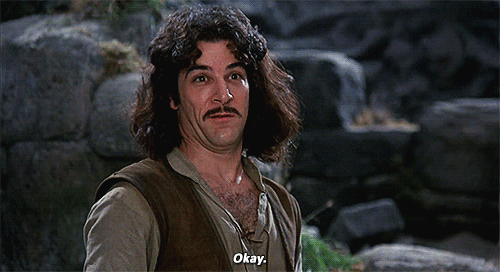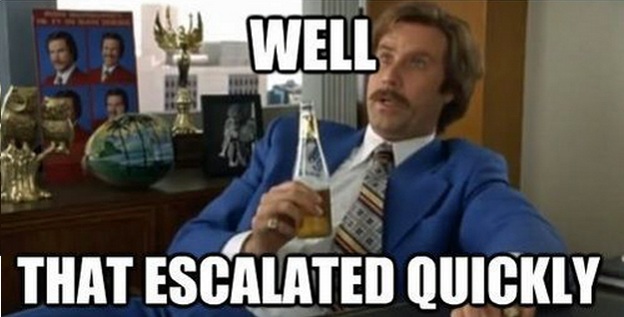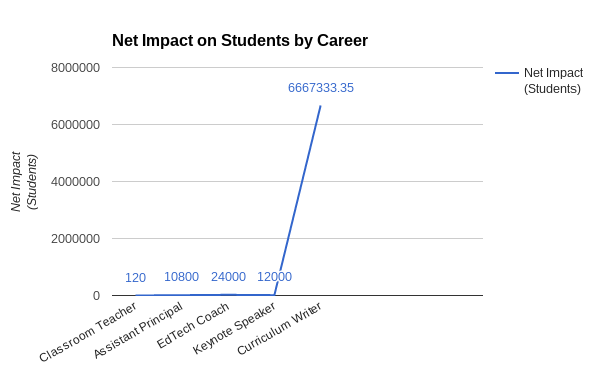After dinner, taking a swim in the Atlantic, stopping by the Carnegie debrief dinner, and strolling on the beach with some of the staff, I returned to the bar on a Thursday night after giving the keynote address that morning a few weeks ago.
Around the table are some folk I’d met at the conference earlier that day.B One of themB had asked for some of my time, so I was glad to catch him in a social setting.
After several minutes of me listening and nodding, the group finally asked me some hard questions.
Questions that nobody in my current circle is asking me and questions that I won’tB likely answer how they expect. Questions that made me pause and write them down in a Google Doc titled “Questions to ask myself later.” Questions like:
- Where do you see yourself in five years?
- You just spoke toB a room of 150, how will you get to a room of 500? A thousand?
- Do you want a drink? We have a tab open.
Vision and Math
My initial responses headed down the usual, paved path of most of the country’s educators:
“In five years, I’d like to be in progress on an Administrative Credential. I could go for an Assistant Principal job, but probably not a Principal. Of course, I’d be happy to return to the classroom. I really love teaching; in fact, I may return to the classroom and retire from there.”
The director-type on the end shakes her head and pounds her drink on the table. “Bullshit. You’re eyeing the classroom because it’s easy and you know you’d be awesome at it. Think bigger. What are some goals that scare the shit out of you? Get outside your comfort zone.”
Boy, she pulls no punches.
Am I scared of big goals?
I don’t think so.
The classroom is a comfortable place for me, but that’s where student relationships are the closest. Relationships are far more important to me than math.
After attempting to communicate this, it becomes clear that they aren’t buying it.
Next to me, a guy says, “You may have impacted… fifty teachers in the room? Let’s say fifty. Each of those teachers have, what… 150 students? Think of that impact; think of how many students you’ve impacted today.” He raises his eyebrows.
From the end of the table, one of them says, “What would you do if you could impact aB million students?”
“Look at it this way,” I clarify. “I may have impacted 50 teachers today to change something. That’s probably… at the most, a 5% impact on fifty teachers times 150 students. If I impact 40B teachers in my districtB at, say, 80%, that’s likely still a greater net impact than if I am a full-time speaker.”
We debated for a while longer until IB noticed my flight was due to leave in 7 hours. I decide to leave on a high note.
“Okay. The dream that scares the shit out of me; I’d like to start a Teaching School in the same vein as a Teaching Hospital, like a lab where pre-service teachers could observe, learn, and practice alongside veteran teachers in cohorts. Glass walls in the back of all classrooms and it’d be paired with a nearby university, just like a Teaching Hospital. The teacher candidates get tons of classroom experience and observation hours. Plus, it draws teachers and students to the school, who are certain that it’s a great place to be.”
The director-type on the end raises her eyebrows. “Fuck. I would love that.”
I strolled back to my fancy hotel room, my head spinning with new questions and new ideas for my own career, wondering if I could steal director-type to run this kind of school.
There’s a lot to think about.
Days Later
I realize that there’s an easy way to compare the impact of various careers.
It’s clear that there’s no contest. Even after adjustingB the numbers to be crappy curriculum vs. mediocre coach, it’s tough to argue against a curriculum writer impacting the most students.
Still not enough to make me pursue that route, though. While “student impact” is a strong enough statement for a business card or a grant proposal, I’m not convinced that it’s specific enough goal for me.
Do More of What You Love
This week at Twitter Math Camp 2015, keynote speakerB Christopher Danielson encouraged the attendees to figure out what we love, then do more of that.
I love personal growth.
Students slowly buildingB their risk-taking muscles.
Friends having tough conversations that will strengthen a relationship.
Teachers plucking up courage to try new strategies.
SpousesB learning more about what makes each other tick.
A group of pre-service teachers figuring out their own classroom management style and defining a classroom culture.
I love these things because I love personal growth.
AndB itB can be done with only one person; I don’t need a million.
~Matt “Teacher of Teachers… of Teachers” Vaudrey
P.S. A few of these “lab schools” already exist. Some other dreamers and I are buying bricks to build one in Southern California.
If you’re interested, let’s talk more about it.




Leave a Reply